The Air Force is looking south and focusing on air combat and close-air support training with its Latin American allies.
Brazil, which just elected a far-right and seemingly pro-U.S. president, hosted CruzEx 2018, a multinational air exercise, from Nov. 18-30, according to a U.S. Southern Command press release.
U.S. Defense Secretary Jim Mattis has long advocated for closer ties between the U.S. and Latin America.
“We see Latin America as our neighbor. Some people say we don’t pay much attention to it. That is certainly is not the case in the military,” Mattis told reporters at the Pentagon in August. “We share a great [culture], even in this very diverse Western Hemisphere. And most of all we share values.”
The U.S. sent F-16 Fighting Falcons from the Texas Air National Guard and one KC-135 Stratotanker from the Washington Air National Guard to CruzEx 2018, according to multiple press releases. U.S. special tactics airmen from the 147th Air Support Operations Squadron and SERE instructors from the 141st Air Refueling Wing also went south to participate in the two-week training iteration.
Six other partner nations, including Chile, Peru and Uruguay, participated with troops and aircraft. Venezuela, which brought F-16s at the last gathering in 2013, participated only as observers this time around.
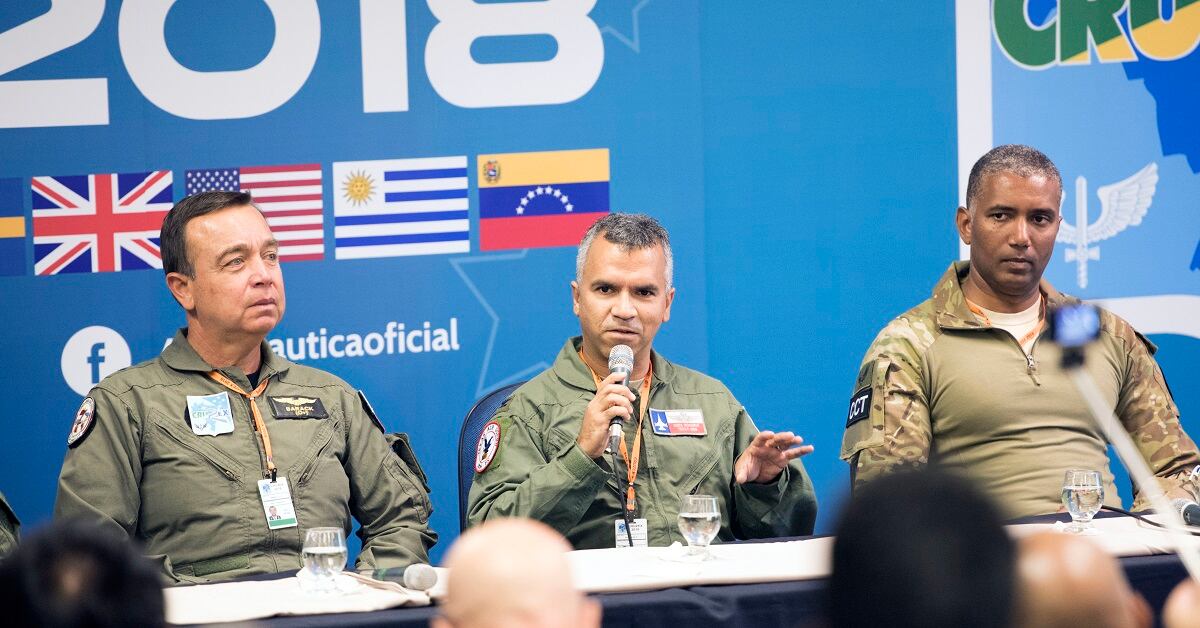
Some experts have warned of China’s encroachment in the region, arguing that strong relations with allies like Brazil are necessary to deter the East Asian power. Others are concerned that absent well-maintained ties, countries with more turbulent U.S. relations, like Venezuela and Cuba, will stand unopposed in the region.
During this year’s CruzEx training, there was an emphasis on unconventional air operations, with troops conducting free-fall parachuting, helicopter insertions and joint terminal attack controller missions.
France, Portugal, Brazil and the U.S. all sent JTAC-qualified airmen.
“The goal is to work together, to train on how to properly and more efficiently call in close-air support in a combat situation," said Tech. Sgt. Matt Renteria, a JTAC with the Texas Air National Guard. “Riding on the planes, calling in the air strikes together, it makes the learning that much easier because you’ve already built a rapport. There is trust and you know each other, and that just works really well on a training level.”
RELATED
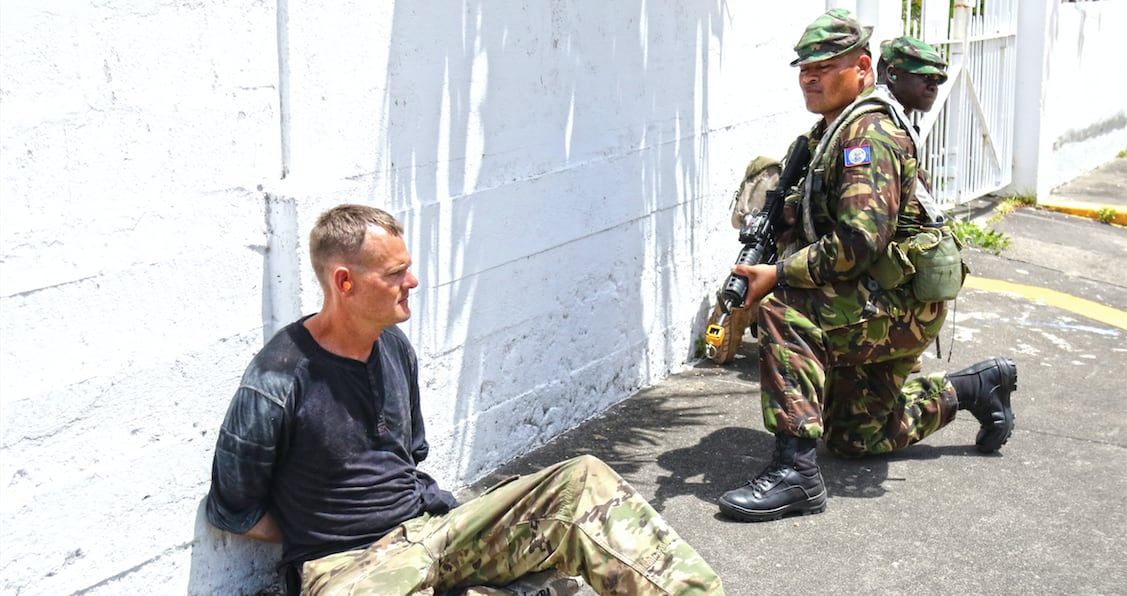
U.S. National Security Adviser John Bolton has praised Brazil’s controversial president-elect, Jair Bolsonaro, signaling deeper ties are on the way.
Bolton called Bolsonaro a “like-minded leader,” during a speech at Miami Dade College Nov. 2, adding that the election results demonstrated “a growing regional commitment to free-market principles, and open, transparent and accountable governance.”
During that same speech, Bolton called Venezuela’s current leadership poisonous, saying the U.S. “will no longer appease dictators and despots near our shores in this hemisphere.”
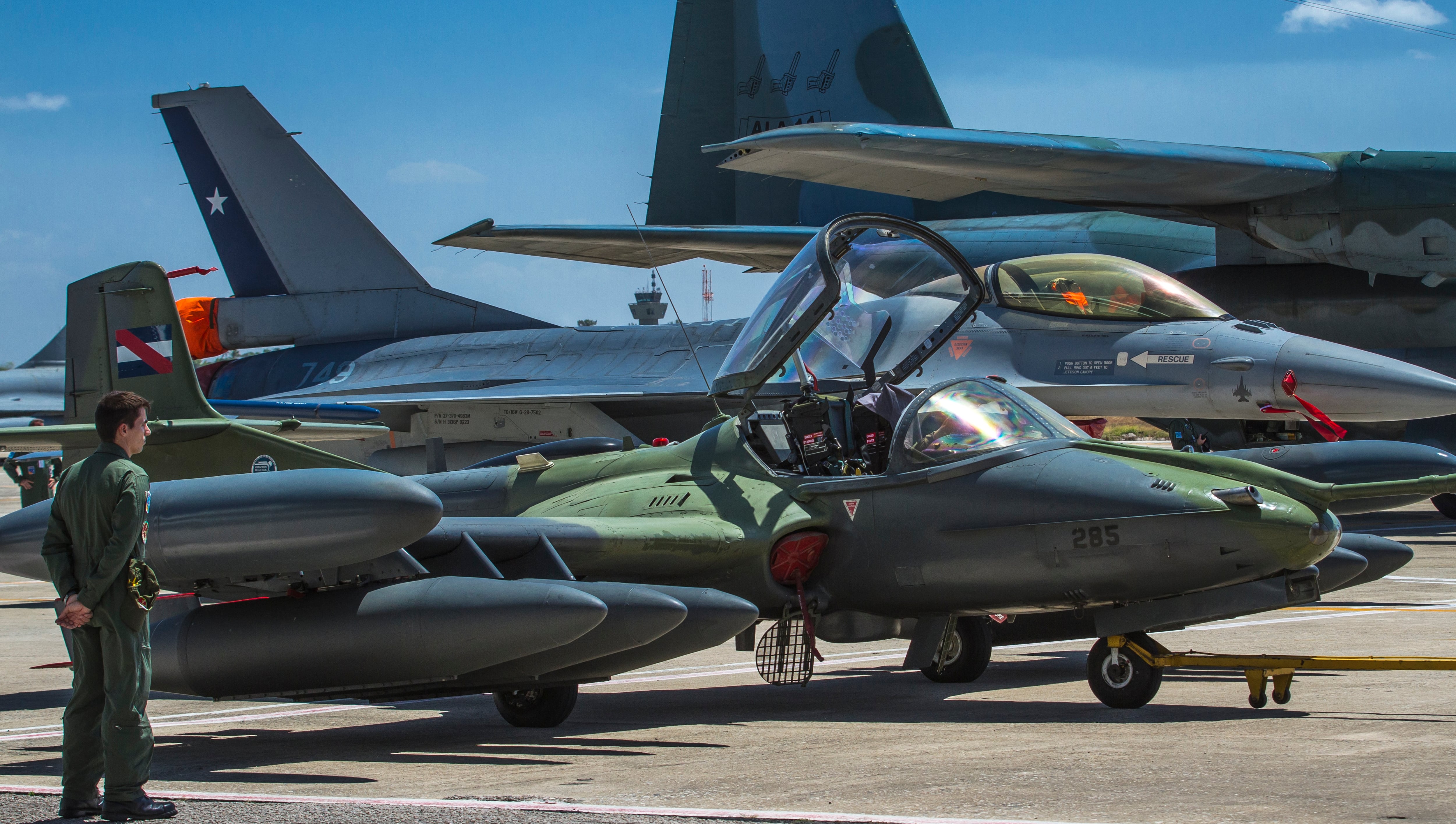
The U.S. military has been closely watching the ongoing economic crisis in Venezuela, where the country’s president, Nicolas Maduro, has shifted his administration into what many warn is a dictatorship.
Top U.S. officials reportedly met with Venezuelan dissidents who floated the idea of a U.S.-backed coup of Maduro, but the Trump administration rebuked the offer, instead pushing for sanctions and humanitarian aid in the form of a U.S. Navy hospital ship.
Air Force officials also argue that promoting strong defense relationships is crucial to addressing challenges to democracy and human rights across the region, according to their press release on CruzEx 2018.
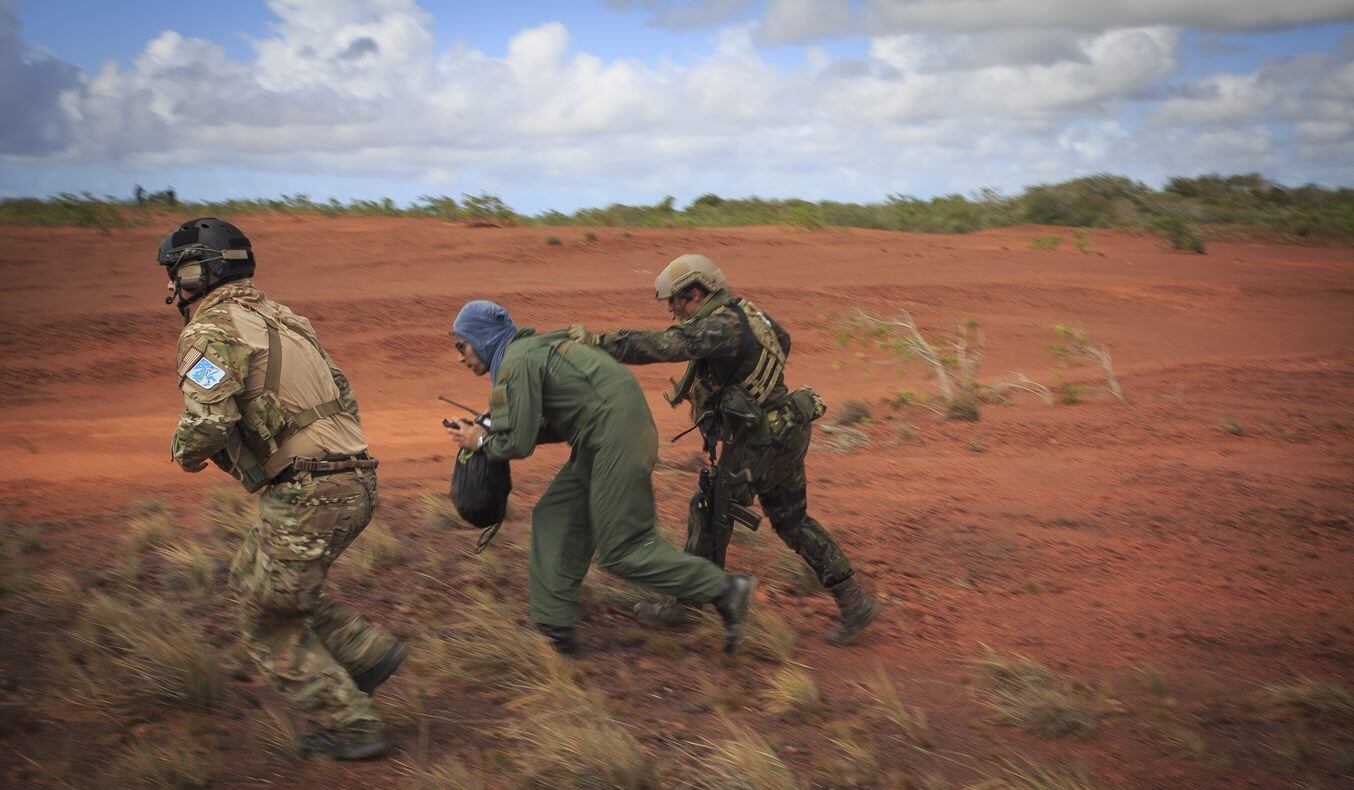
As one example, the New York National Guard and Brazilian armed forces officially became partners in June under the National Guard Bureau’s State Partnership Program, a military-to-military training exchange with the Defense Department and State Department’s policy goals in mind.
“It shows the National Guard is engaged, not just at the United States level but at an international affairs level,“ said Lt. Col. Peter Keegan, New York National Guard J3 civil support operations deputy director, in a U.S. Southern Command statement.
“It’s important for both the Brazilians and the U.S. [to train] along with coalition partners so that when there is an actual international emergency, we are not meeting for the first time during the event," Keegan added.
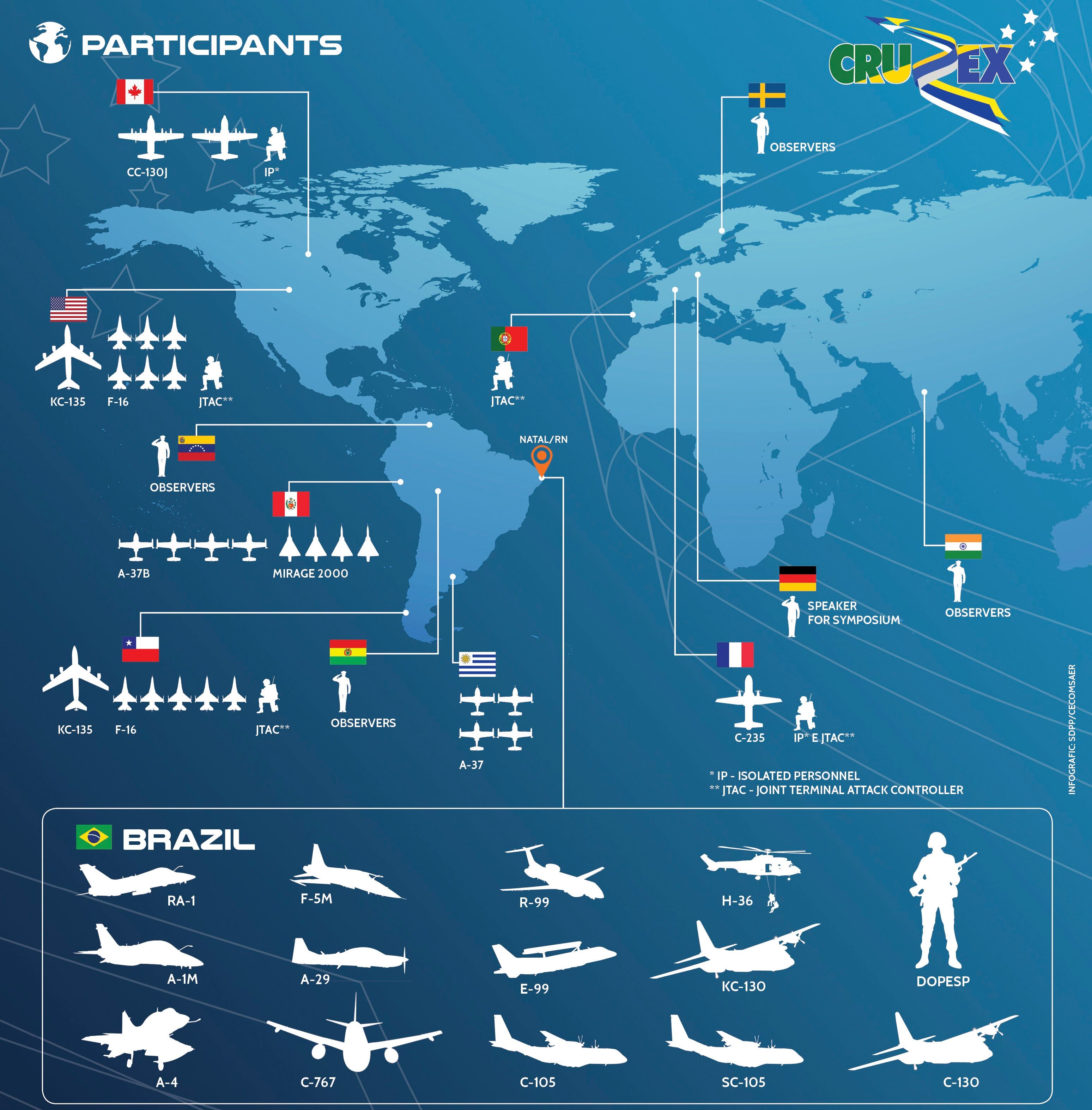
The Chilean Air Force, which sent aircraft to CruzEx, is also partnered with the 149th Fighter Wing of the Texas Air National Guard.
“For me it is awesome flying somewhere that I’ve never been, with countries that I’ve never flown with, against airplanes I’ve never flown with, and just seeing everyone come together to participate in a large-force exercise,” said Maj. Weston Killian, a 149th Fighter Wing F-16 pilot. “It was cool to come together and listen to the way they do things and plan things, and they are very interested to learn from us also, see how we do things and get better as we work together as a team.”
“I’ve seen some of them on their visits to San Antonio, and they recognize a lot of us from the exercises we’ve done with them,” Killian added. “We’ve built some friendships with the Chilean F-16 pilots over the years, so it’s almost like flying with guys in the squadron, and their English is very good. It’s been a really good experience.”
Kyle Rempfer was an editor and reporter who has covered combat operations, criminal cases, foreign military assistance and training accidents. Before entering journalism, Kyle served in U.S. Air Force Special Tactics and deployed in 2014 to Paktika Province, Afghanistan, and Baghdad, Iraq.





